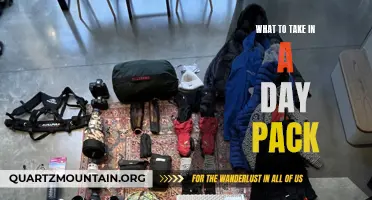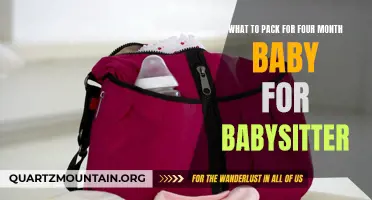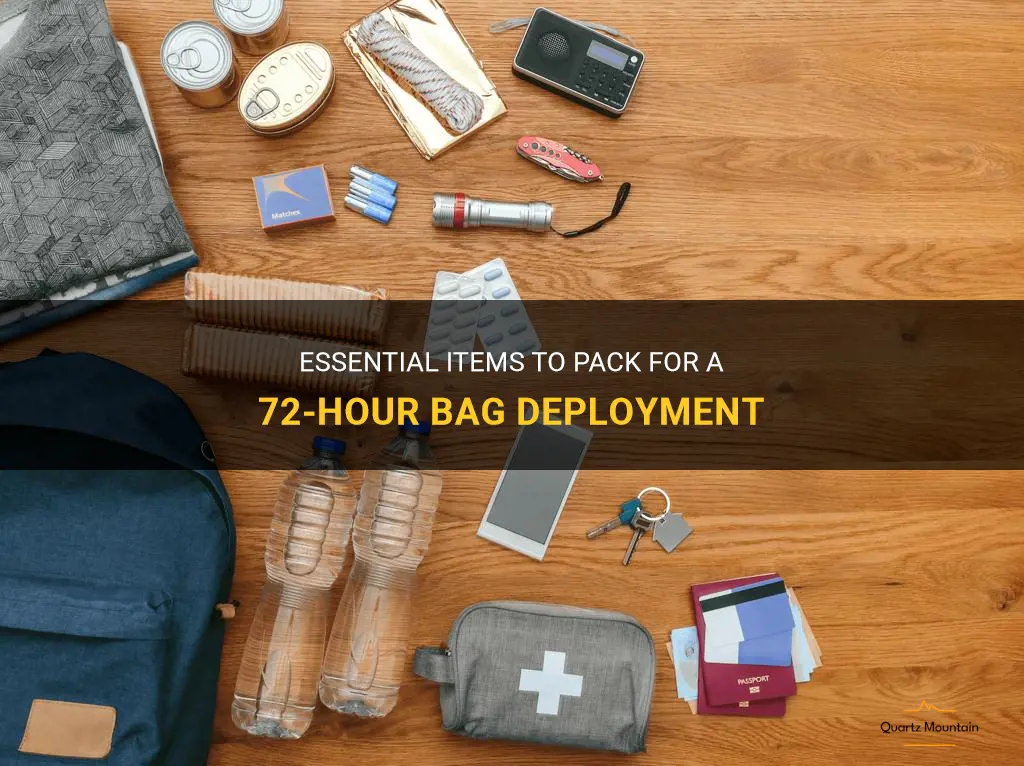
When disaster strikes and you need to evacuate, having a well-packed 72-hour bag can make all the difference in ensuring your safety and comfort. This bag, also known as a bug-out bag or go-bag, contains essential items that will sustain you during the first 72 hours of an emergency. From food and water to communication tools and first aid supplies, these are the must-have items to include in your 72-hour bag deployment.
| Characteristic | Value |
|---|---|
| Duration | 72 hours |
| Food | Non-perishable and easy to prepare |
| Water | 3 liters per person per day |
| Clothing | Weather appropriate and durable |
| Shelter | Lightweight and easy to set up |
| First Aid Kit | Essential medical supplies and medications |
| Personal Hygiene | Toothbrush, toothpaste, soap, etc. |
| Communication | Fully charged phone and charger |
| Cash | Small bills and coins for emergencies |
| Identification | Personal identification and important documents |
| Tools | Multi-tool, flashlight, and batteries |
| Protection | First aid supplies, whistle, and face mask |
| Comfort Items | Sleeping bag, blanket, and extra clothing |
| Important Contacts | Emergency phone numbers and addresses |
| Maps | Local maps and directions |
| Entertainment | Playing cards, books, or other activities |
What You'll Learn
- What are the essential items to pack in a 72-hour bag for a deployment?
- How much food and water should be packed in a 72-hour bag for deployment?
- Are there any specific clothing items that should be included in a 72-hour bag for deployment?
- What medical supplies or first aid items should be included in a 72-hour bag for deployment?
- Are there any specific tools or survival equipment that should be packed in a 72-hour bag for deployment?

What are the essential items to pack in a 72-hour bag for a deployment?
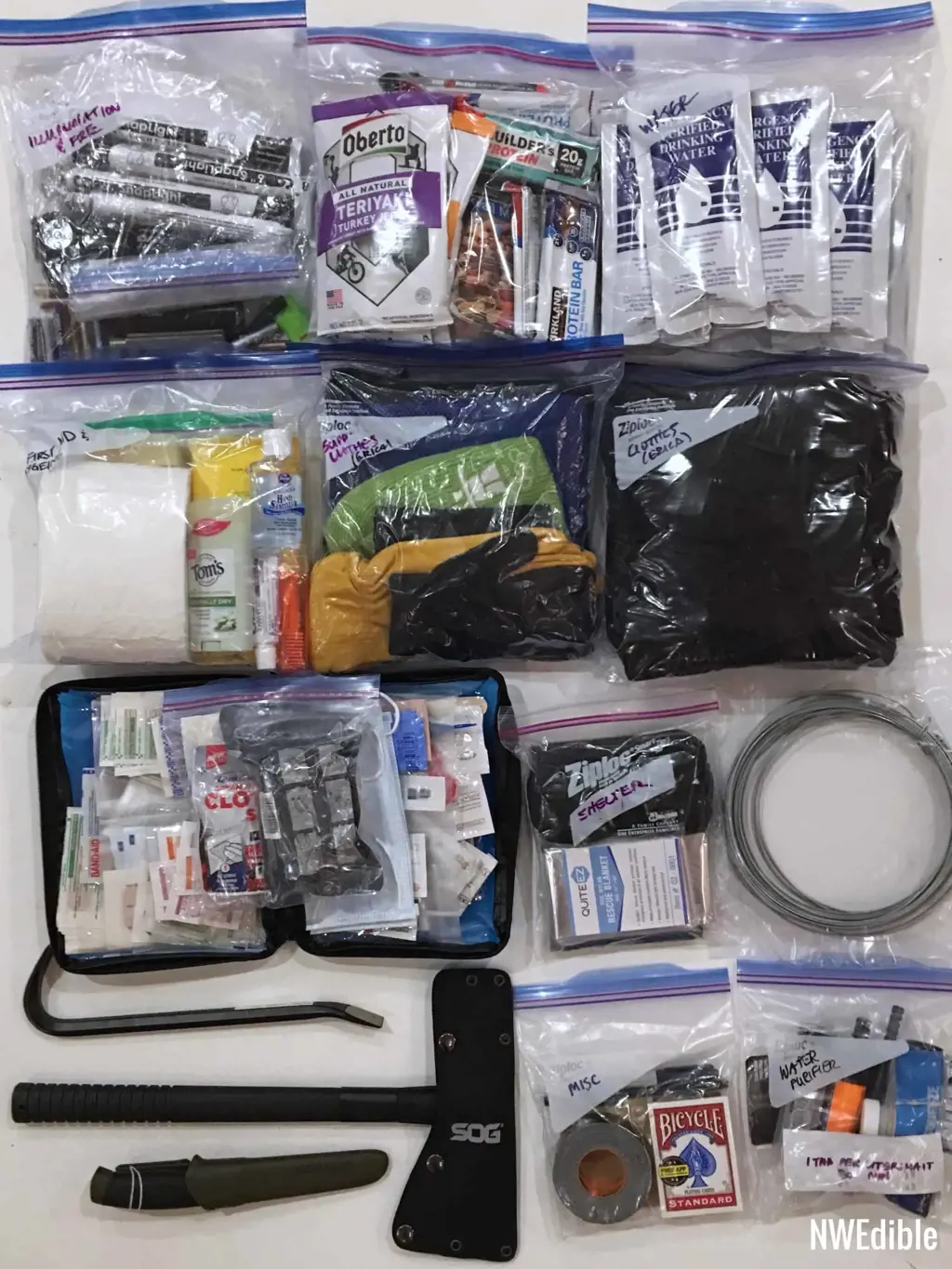
If you're being deployed for a 72-hour mission, having a well-packed 72-hour bag is essential for your comfort and survival. Whether you're in the military, a first responder, or part of a disaster relief team, having the right items in your bag can make a world of difference. In this article, we'll discuss the essential items you should pack in your 72-hour bag for a deployment.
- Water and hydration: Staying hydrated is crucial, especially during times of high physical activity or stress. Pack at least one gallon of water per day for yourself. Consider including water purification tablets or a portable water filter to ensure your water remains safe to drink if your supply runs low.
- Food and nutrition: Include non-perishable food items that are high in calories and provide sustained energy. Protein bars, jerky, dried fruits, and nuts are good choices. Make sure to include a can opener if you choose to pack canned foods. If you have dietary restrictions, pack food options that meet your specific needs.
- Shelter and warmth: Pack a lightweight, compact tent or a tarp along with paracord or bungee cords for easy setup. Include an emergency blanket or sleeping bag to keep you warm during cold nights. A small camping stove or portable stove can be useful for cooking meals or boiling water.
- Clothing and personal hygiene: Pack enough clothing for three days, including extra socks, underwear, and a hat. Consider packing lightweight, moisture-wicking clothing for optimal comfort. Don't forget toiletries such as a toothbrush, toothpaste, soap, and toilet paper. If you wear glasses or contacts, bring an extra pair and cleaning supplies.
- First aid supplies: A well-stocked first aid kit is essential. Include band-aids, gauze, tape, antiseptic wipes, pain relievers, sunscreen, insect repellent, and any necessary prescription medications. Familiarize yourself with basic first aid procedures and consider taking a first aid course before your deployment.
- Communication and navigation: A fully charged cell phone or a portable charger is crucial for staying connected during deployments. It's also a good idea to pack a map and compass, as well as a GPS device if available. Consider including a whistle or signal mirror for emergency situations.
- Tools and equipment: Pack a multi-tool or Swiss army knife, a flashlight with extra batteries, a headlamp for hands-free use, and a small hand-crank radio for accessing information and updates. Duct tape, zip ties, and rope can also be useful in various situations.
- Cash and important documents: It's always a good idea to have some cash on hand for emergencies or unforeseen circumstances. Pack important documents such as your ID, passport, deployment orders, medical records, and any other necessary paperwork. Store them in a waterproof bag or container.
Remember to periodically check and update the items in your 72-hour bag to ensure everything is in working order and not expired. Additionally, tailor your bag to your specific needs or requirements based on the nature of your deployment and location.
In conclusion, packing a well-prepared 72-hour bag for a deployment is essential for your comfort and survival. By including the essential items mentioned above, you'll be better prepared for any situation that may arise during your mission. Stay organized, stay prepared, and stay safe!
Essential Items to Pack for a Trip to Portugal
You may want to see also

How much food and water should be packed in a 72-hour bag for deployment?
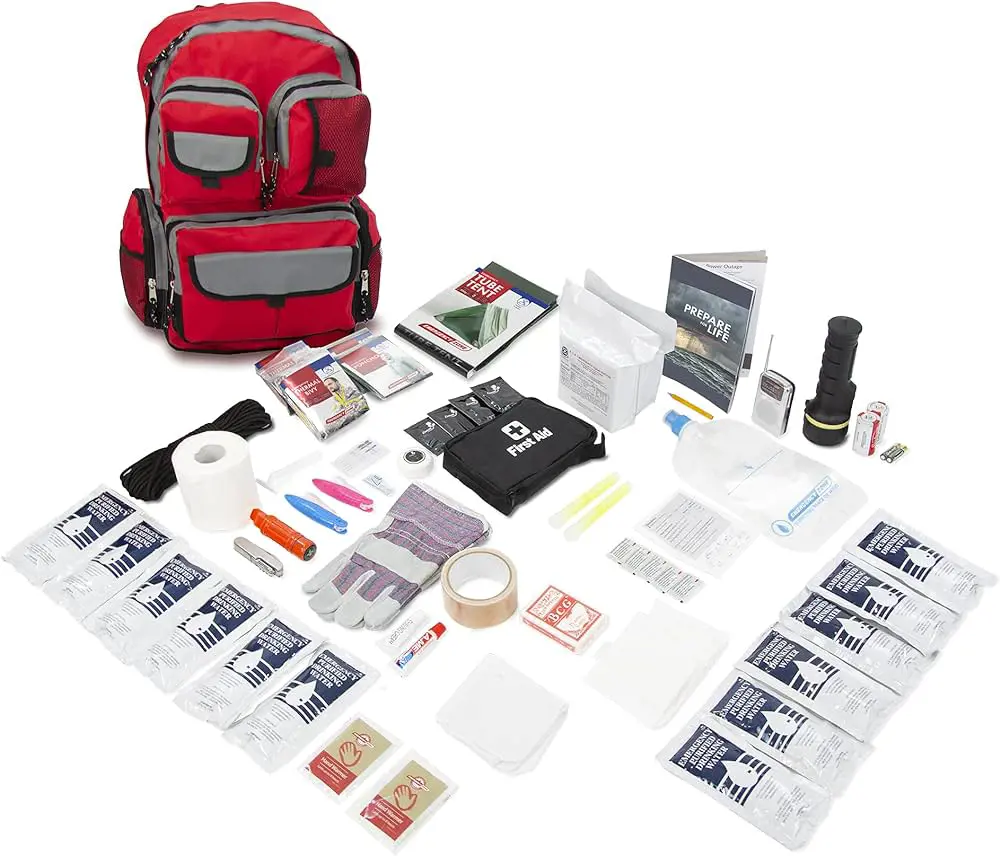
When preparing a 72-hour bag for deployment, it's important to include enough food and water to sustain yourself during that period. The amount of food and water you should pack will depend on various factors such as your age, sex, activity level, and climate conditions. In this article, we will guide you through the process of determining how much food and water you should pack in your 72-hour bag.
Water is essential for survival, and it's recommended to have at least one gallon (3.8 liters) of water per person per day. This amount will cover drinking, cooking, and hygiene needs. If you have additional space in your bag, it's a good idea to pack extra water bottles or a portable water filter to ensure a clean water supply. Remember to regularly check the expiration dates of your water bottles and replace them as necessary.
Next, let's consider the food requirements for your 72-hour bag. The goal is to pack enough calorie-dense and non-perishable foods that provide a balance of essential nutrients. Here are some steps to help you determine how much food to pack:
- Calculate your daily calorie needs: The average adult requires around 2,000-2,500 calories per day. However, this can vary depending on factors such as age, sex, and activity level. Use an online calorie calculator to determine your specific daily calorie needs.
- Choose high-calorie foods: When selecting food items for your 72-hour bag, opt for calorie-dense options as they will provide more energy per weight. Examples of high-calorie foods include energy bars, peanut butter, nuts, dried fruits, and meal replacement shakes.
- Estimate the number of meals: Divide your daily calorie needs by the average calories per meal to determine how many meals you should pack. For example, if your daily calorie needs are 2,500 and each meal provides around 500 calories, you would need 5 meals for a 72-hour period.
- Consider nutritional balance: While it's important to pack calorie-dense foods, don't forget about the nutritional value. Include a variety of foods that provide essential nutrients such as proteins, carbohydrates, and fats. Good options include canned tuna or chicken, whole-grain crackers, instant oatmeal, and dried vegetable soups.
- Account for dietary restrictions and preferences: If you have any dietary restrictions or preferences, make sure to choose food items that align with your needs. For example, if you follow a gluten-free diet, opt for gluten-free snacks and meals.
- Pack additional snacks: In addition to your main meals, it's a good idea to include some snacks in your 72-hour bag. Snacks like granola bars, trail mix, and jerky can provide quick energy boosts between meals.
Remember to regularly check the expiration dates of the food items in your bag and replace them as necessary. Additionally, consider packing some essential cooking utensils such as a can opener and a lightweight camping stove if you have space in your bag.
In conclusion, when packing food and water for a 72-hour bag deployment, aim for at least one gallon of water per person per day and calculate your daily calorie needs to determine the number of meals you should pack. Choose high-calorie, non-perishable foods that provide a nutritional balance and consider any dietary restrictions or preferences. By following these guidelines, you can ensure that you have enough sustenance to sustain yourself during a 72-hour period.
Essential Items to Pack for Montañita, Ecuador: A Complete Guide
You may want to see also

Are there any specific clothing items that should be included in a 72-hour bag for deployment?
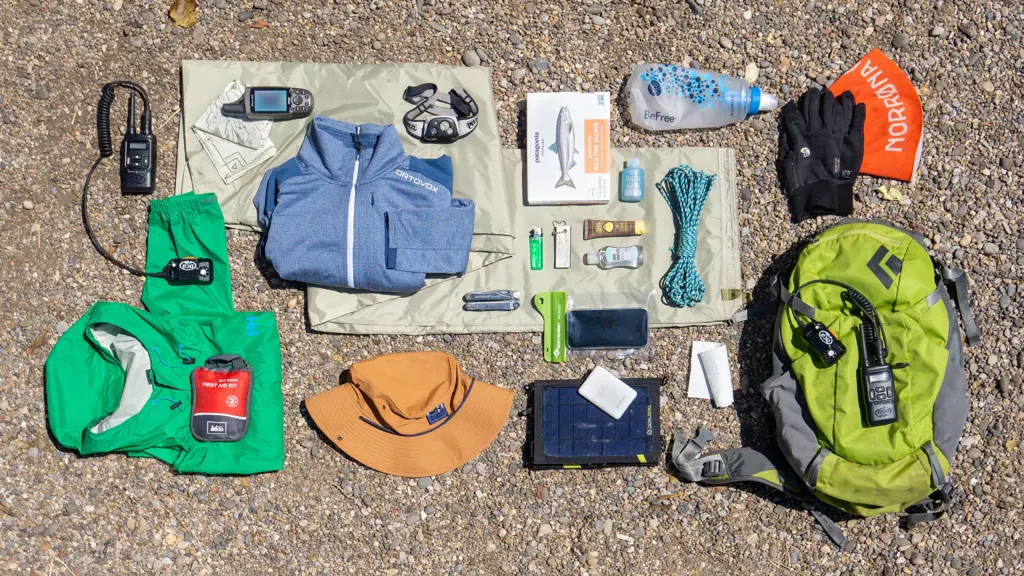
When preparing a 72-hour bag for deployment, it is essential to pack clothing items that will provide comfort, practicality, and versatility in various weather conditions. The choice of clothing should consider the mission requirements, location, and climate. Here are some specific clothing items that should be included in a 72-hour bag for deployment:
- Base Layers: Pack a few sets of moisture-wicking base layers, such as thermal underwear or synthetic shirts and pants. These layers will help regulate body temperature, wick away sweat, and provide insulation in colder temperatures.
- Mid-Layers: Include lightweight fleece jackets or sweaters as mid-layers. These garments add warmth without adding bulk and can be easily layered with other clothing items.
- Outerwear: Depending on the climate, pack a waterproof and windproof jacket or parka. Look for options with breathable materials to prevent overheating during rigorous activities. A jacket with multiple pockets for storing small essentials can also be advantageous.
- Trousers: Choose durable trousers that are comfortable and allow for a wide range of motion. Cargo pants or tactical pants with multiple pockets are preferable as they offer ample storage space for small gear and necessities.
- Undergarments and Socks: Don't forget to pack enough undergarments, including underwear and bras. Opt for moisture-wicking materials to keep the body dry and comfortable. Additionally, pack several pairs of moisture-wicking socks to prevent blisters and provide foot protection.
- Footwear: A sturdy and comfortable pair of boots is essential for any deployment. Look for boots that are lightweight, offer ankle support, and have a nonslip sole. Ensure they are broken in before deployment to prevent blisters and discomfort.
- Headwear: Include a hat or cap to protect against the elements, particularly from the sun or rain. A beanie or headband can also be beneficial for colder climates.
- Gloves: Depending on the mission requirements and climate, pack gloves suitable for the conditions. Lightweight, fingerless gloves can be convenient for dexterity, while insulated gloves are necessary for colder environments.
- Sleepwear: Pack comfortable sleepwear, such as moisture-wicking pajamas or lightweight sleeping clothes. These will provide quality rest and comfort during downtime.
- Accessories: Consider packing a few essential accessories like sunglasses, a bandana or scarf, and a sturdy belt. These items can provide protection against the sun, dust, or wind, and the belt can be used for various purposes.
When packing clothing items for a 72-hour bag, it is crucial to prioritize function, durability, and versatility. Choose clothing that can be layered to adjust to different weather conditions and is made from moisture-wicking materials to stay dry and comfortable. Remember to pack extra items in case of emergencies or unforeseen circumstances.
The Ultimate Packing Guide for Hood to Coast: Essential Items for a Successful Race
You may want to see also

What medical supplies or first aid items should be included in a 72-hour bag for deployment?
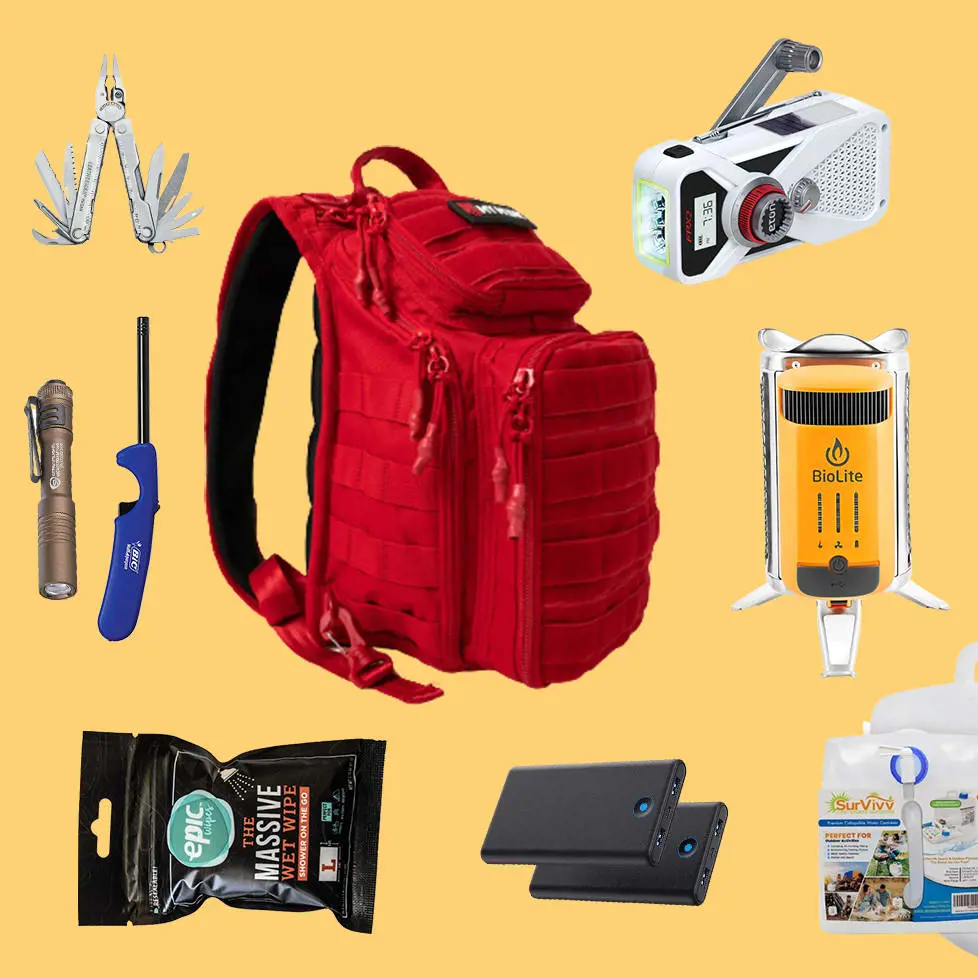
When preparing for deployment or any emergency situation, having a well-stocked and organized 72-hour bag is crucial. This bag should contain all the necessary medical supplies and first aid items to handle injuries and ailments that may occur during the initial phase of the deployment. Here is a list of essential items that should be included in a 72-hour bag for deployment:
- Basic First Aid Kit: Every 72-hour bag should contain a basic first aid kit with essential supplies such as band-aids, gauze pads, adhesive tape, antiseptic wipes, and tweezers. These items can be used to treat minor cuts, scrapes, and burns.
- Medications: It's important to include any necessary medications that you require on a regular basis. This may include prescription medications, over-the-counter pain relievers, antacids, and allergy medications. Make sure to check the expiration dates and replenish them periodically.
- Personal Protective Equipment (PPE): In a deployment setting, it's crucial to have proper personal protective equipment to prevent the spread of diseases and infections. This should include disposable gloves, face masks, and hand sanitizer. These items will protect you and others from infectious diseases or harmful substances.
- Basic Wound Care Supplies: In the event of a more serious injury, it's important to have supplies to clean and dress wounds. Include items such as sterile saline solution, sterile dressings, adhesive bandages, and a pair of trauma shears. These items will allow you to manage wounds until further medical assistance is available.
- Cold and Heat Packs: Cold and heat packs can provide relief for a variety of injuries and ailments. Cold packs can help reduce swelling and inflammation, while heat packs can help soothe muscle pain and alleviate cramps. These packs are compact and easy to use in a deployment setting.
- Essential Tools: In addition to medical supplies, it's essential to include a few basic tools in your 72-hour bag. This may include a digital thermometer, a small flashlight, a multi-tool, and emergency contact information. These tools will come in handy in various situations and can be valuable during times of limited resources.
- Basic Medication Administration Supplies: If you have any family members or team members with specific medical conditions, it may be necessary to include specific supplies for administering their medication. This may include insulin syringes, glucose meters, inhalers, or EpiPens.
It's important to periodically check and replenish the supplies in your 72-hour bag to ensure that everything is in good condition and up to date. Additionally, it's crucial to familiarize yourself with the items and their usage before deployment to ensure that you know how to utilize them effectively in case of an emergency. A basic knowledge of first aid and medical care is also recommended, as it will enable you to provide initial treatment until higher-level medical assistance is available.
In conclusion, a well-stocked 72-hour bag for deployment should include basic first aid supplies, medications, personal protective equipment, wound care supplies, cold and heat packs, essential tools, and medication administration supplies if necessary. By being well-prepared and having the necessary medical supplies and first aid items readily available, you can ensure your safety and the well-being of others during the initial stages of any deployment or emergency situation.
Essential Items to Pack for a Memorable Day Hike in Bryce Canyon
You may want to see also

Are there any specific tools or survival equipment that should be packed in a 72-hour bag for deployment?
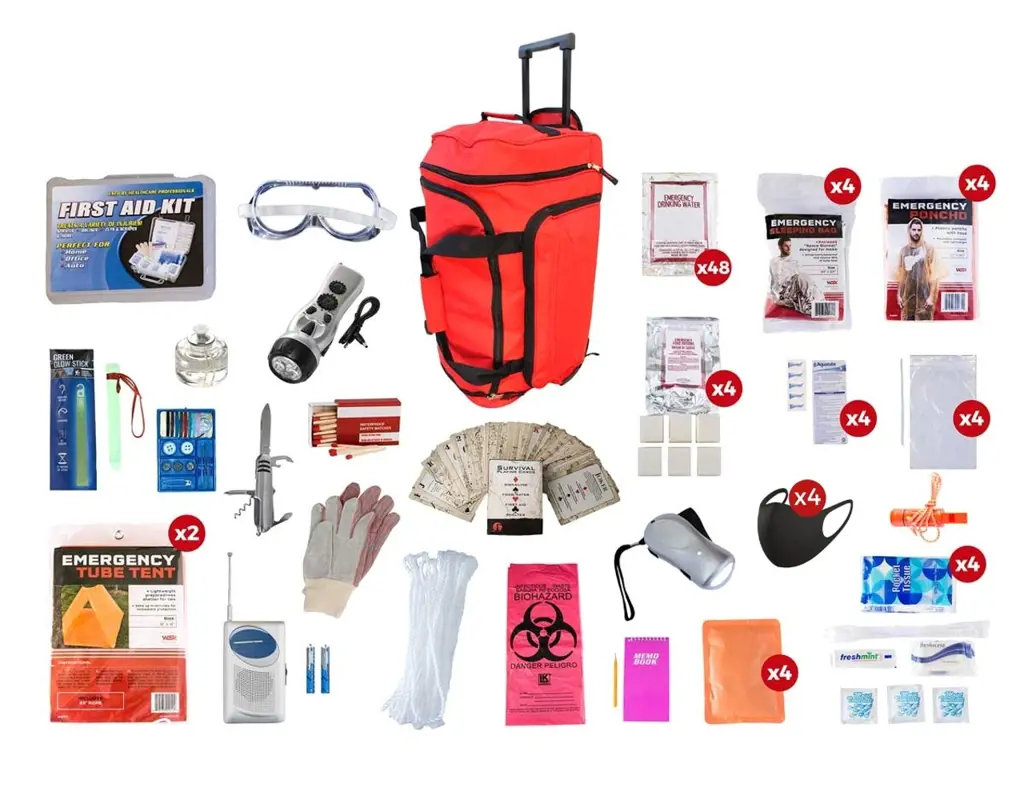
When packing a 72-hour bag for deployment, it is crucial to include specific tools and survival equipment that can aid in your ability to survive and thrive in emergency situations. These items will help ensure your safety and well-being during the first critical hours and days of a deployment. Here are some essential tools and equipment that should be included in your 72-hour bag:
- Multi-Tool: A multi-tool is a versatile tool that combines various functions into one compact device. It typically includes pliers, knives, screwdrivers, and other essential tools. Having a multi-tool in your bag can come in handy for various tasks, such as cutting ropes, opening cans, or repairing equipment.
- First Aid Kit: A well-stocked first aid kit is essential for any emergency situation. It should include bandages, disinfectant, pain relievers, tweezers, and other necessary medical supplies. Be sure to regularly check and restock your first aid kit to ensure that all items are up to date.
- Flashlight: A reliable flashlight is crucial for navigating in low-light conditions or during power outages. Opt for a high-quality, durable flashlight that uses LED technology for longer battery life. Consider packing spare batteries to ensure that you can use your flashlight for an extended period if necessary.
- Emergency Blanket: An emergency blanket, also known as a space blanket, can provide warmth and insulation during emergencies. These lightweight, compact blankets are designed to retain body heat and can help prevent hypothermia in extreme weather conditions. Include a few emergency blankets to protect yourself and others from the elements.
- Water Filtration System: It is essential to have access to clean drinking water during deployment. Pack a portable water filtration system or water purification tablets to ensure that you can safely consume water from various sources. This equipment will allow you to transform potentially contaminated water into a potable form, reducing the risk of waterborne illnesses.
- Fire Starting Kit: Fire can provide warmth, light, and the ability to cook food in emergency situations. Include a fire starting kit in your 72-hour bag, consisting of waterproof matches, a lighter, and fire starters. These tools will help you start a fire even in adverse weather conditions, providing comfort and essential resources.
- Communication Device: In emergency situations, maintaining communication with others is crucial. Include a fully charged cell phone or a two-way radio in your bag to stay connected with emergency response teams or loved ones. Consider packing a portable solar charger or a spare battery to ensure you can recharge your communication device if needed.
- Food Rations: Pack non-perishable food items that can provide sustenance for at least 72 hours. Include energy bars, canned goods, or dehydrated meals that require minimal preparation. Be sure to rotate these items regularly to ensure they remain fresh and safe to consume.
- Shelter: Include a lightweight, compact tent or a survival shelter in your 72-hour bag. These items can provide protection from the elements and a sense of security during emergencies. Choose a shelter that can withstand various weather conditions and is easy to set up.
- Personal Hygiene Items: Don't forget to pack personal hygiene items such as toothbrushes, toothpaste, wet wipes, and hand sanitizers. These items can help maintain cleanliness and prevent the spread of diseases in emergency situations.
Remember to regularly check and update your 72-hour bag to ensure that all equipment is in good working condition and that perishable items are replaced before their expiration dates. Additionally, consider your unique needs and the specific environment you may be deployed to when packing your bag. By being prepared and packing these essential tools and survival equipment, you can increase your chances of successfully navigating through any emergency situation.
Essential Items to Pack for a Memorable Experience at the Masters
You may want to see also
Frequently asked questions
When packing your 72-hour bag for deployment, it is essential to include the basics such as a change of clothes, toiletries, medications, and important documents like your ID and passport. You should also pack non-perishable food items, water bottles or a water filter, a flashlight, extra batteries, a first aid kit, a multi-tool, a phone charger, a portable radio, a sleeping bag or blanket, a waterproof poncho, and a portable phone charger. Additionally, it is recommended to include a list of emergency contacts and a small amount of cash or a debit card.
It is recommended to pack at least three days' worth of non-perishable food items in your 72-hour bag for deployment. This can include items such as energy bars, canned food, or freeze-dried meals. As for water, it is typically advised to pack one gallon of water per person per day. However, if you are not able to carry that amount of water, you can include a portable water filter or water purification tablets to create drinkable water from other sources.
It is advisable to include a small amount of cash or a debit card in your 72-hour bag for deployment. In emergency situations, ATMs may not be accessible, and having cash on hand can be crucial. Remember to pack small bills as it might be difficult to get change in emergency scenarios. It is also important not to pack valuable items in your bag. While it can be tempting to bring expensive gadgets or jewelry, it is best to leave them at home or in a secure location to minimize the risk of loss or theft during deployment.
In addition to the essentials, there are a few other items you might consider including in your 72-hour bag for deployment. These include a small portable stove or camping cookware, extra batteries for your electronic devices, a whistle or signaling device, a small portable tent or tarp, a pair of sturdy work gloves, and personal hygiene items such as hand sanitizer and wet wipes. It is also essential to pack any necessary items for your specific needs or medical conditions, such as glasses, contact lenses, or prescription medications.






